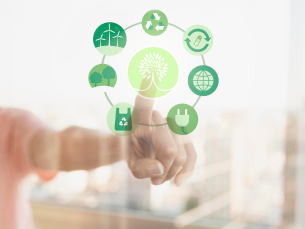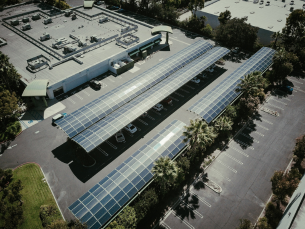Concept/Mission:
Circular economy defines an economy designed to be able to regenerate itself, starting from a new concept of design products and an integrated management of waste, to avoid the use of new materials and to save energy. According to the Ellen MacArthur Foundation, in a circular economy, the flows of materials are of two types: the biological ones, capable of being reintegrated into the biosphere, and the technical ones, destined to be revalued without entering the biosphere. The circular economy has a lot to do with sustainable development, understood as “the process of change such that the exploitation of resources, the direction of investments, the orientation of technological development and institutional changes are made consistent with future needs as well as with the current ones “(WCED, Our Common Future).
The course aims to offer learners a well-structured and original product, based primarily on a technical and vertical approach that allows up-to-date knowledge of the most innovative technologies in the industry as well as a practical understanding of relevant market trends. The Master offers, in fact, the necessary tools to understand, research further and become protagonists of the great technological and cultural transformations at the core of circular economy.
Duration: 12 Months
As every Professional Master’s programme, the Course lasts 1.500 hours/year;
of which:
• 300-400 dealing with lessons and seminars
• 250 individual study
• 350-400 stage/applied research/internship opportunities
• 400 thesis and exams
• Residual: Seminars.
Academic Credits : 60 academic credits
Stage and Didactic Programme:
In the start-up phase of the course, educational offers aimed at the needs of each student and group work will be studied and prepared. Thus, it will be possible to formulate a tailored programme on an individual level, but more often working groups will be created which will carry out collective activities coordinated by academics, experts, and tutors.
The individual work, the stage, mainly as an internship (applied research or field experience) and the thesis work will also be scheduled in line with the prearranged schedule.
Admission Requirements:
The Master course is addressed to all first-degree holders, graduates and encourages the participation of lifelong global students. All learners with a first degree or similar life/education experience including lifelong learners/professionals are invited to apply. A detailed CV/Resume is also required.
Career Progression:
Circular economy is seeing a major and very rapid expansion and is going to affect every single productive and social area of the planet. It is therefore one of the most promising and dynamic industries to explore for future employment.
The Master will form experts in Circular Economy and experts in waste material recycling technologies and their natural career pathway will be in:
• National and international organizations already with a sustainability strategy in place (they are many).
• Activities of strategic consulting in Public Administration and private businesses.
• Consortiums for collection and recycling of waste material.
• Companies in the selective recycling industry.
• Research institutes and international universities.
• Non-governmental organizations (NGOs) and other third-sector organizations.
Course Features
- Lectures 0
- Quizzes 0
- Duration 2023 / 2024
- Skill level Beginner
- Language English
- Students 3
- Assessments Yes






